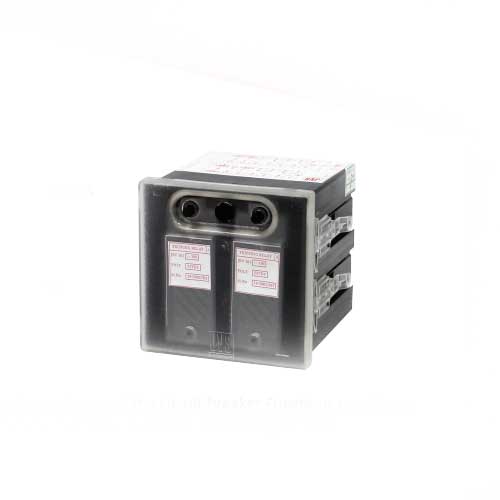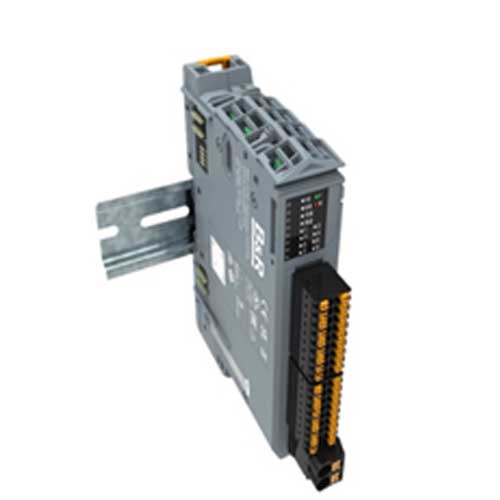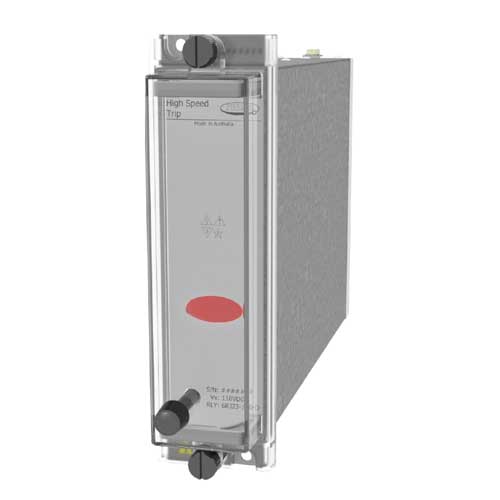Schedule a Call Back
Indo-German Business Ventures: Shifting into higher orbit
 Technical Articles
Technical Articles- Dec 10,15
German companies today are actively engaged in almost all industrial and commercial segments in India.
Indo-German businesses have flourished in India post independence over six decades and more, but the trade relations between the two countries have existed for several centuries. In 1872 Siemens became the first modern day German company associated with India when the first transcontinental telegraph line reached the country.
The year 2015 will be remembered for a renewed thrust in Indo-German trade relations and technical cooperation. India was Partner Country at Hannover Messe 2015 held in April, the annual global technology fair which provided an opportunity to Prime Minister Narendra Modi to share his vision for Make in India. “Whatever we choose to do, from reaching the cutting edge of industry to meeting the most critical social need, we require investment and technology, industry and enterprise. Make in India is not a slogan. It is a new national movement that covers the whole spectrum of our government, society and business,” said Modi, addressing over 300 top global leaders in business, technology, industrial scientists and policy makers gathered for the Opening Ceremony on the evening of April 12, 2015 at the Hannover Congress Centrum. The message was not lost on the audience, comprising the top brass of highly successful global technology companies, the majority from the host country.
Later, when German Chancellor Angela Merkel visited India in October and held bilateral talks with the Indian Prime Minister in New Delhi, the discussions between the two leaders covered a wide range of issues including security and defense, with special focus on boosting trade ties.
Consider the key facts on Indo-German trade ties presently:
*The overall exchange of goods and services between the two countries was valued at around Euro 15.96 billion last year
*India’s exports to Germany rose marginally to Euro 7.03 billion in 2014, while the German imports into the country dropped to Euro 8.92 billion from 9.19 euros in the previous year
* More than 1,600 Indo-German collaborations and around 600 Indo-German joint ventures are currently in operation in India
* Germany will provide India more than Euro 2 billion (USD 2.25 billion) for developing a clean energy corridor and solar projects, and
* Germany’s competencies in manufacturing, high technology, clean energy, water and waste management will provide a robust foundation for enhanced partnerships in a range of priority areas.
 “German subsidiaries in India will benefit from Chancellor Angela Markel’s visit to India,” said Rajesh Chawla, Director, VEKA India, a subsidiary of VEKA AG – the world’s second largest manufacturers of windows and doors systems that has plans to expand in India by introducing new products specific to the Indian market. The USD 1.4 billion company is one of the pioneers of uPVC door and windows systems in India and has recently completed ten years in India. “The visit is not only expected to boost trade ties between the two nations but is also expected to help German subsidiaries entrench their businesses in India with the fast-track approval agreement,” Chawla added. He was referring to the agreement signed by the two countries to set up a separate body to fast-track investments by German companies in the country and weed out the obstacles faced by them in conducting business. The agreement envisages setting up of a separate body, which will be functional by March 2016. It will fast-track investments by German companies into India by regularly screening problems faced by them.
“German subsidiaries in India will benefit from Chancellor Angela Markel’s visit to India,” said Rajesh Chawla, Director, VEKA India, a subsidiary of VEKA AG – the world’s second largest manufacturers of windows and doors systems that has plans to expand in India by introducing new products specific to the Indian market. The USD 1.4 billion company is one of the pioneers of uPVC door and windows systems in India and has recently completed ten years in India. “The visit is not only expected to boost trade ties between the two nations but is also expected to help German subsidiaries entrench their businesses in India with the fast-track approval agreement,” Chawla added. He was referring to the agreement signed by the two countries to set up a separate body to fast-track investments by German companies in the country and weed out the obstacles faced by them in conducting business. The agreement envisages setting up of a separate body, which will be functional by March 2016. It will fast-track investments by German companies into India by regularly screening problems faced by them.
 At the same time, the Embassy of India, Berlin is implementing a unique dedicated and strategic programme, i.e., ‘Make in India Mittelstand’ (MIIM) – a market entry support programme for facilitating investments by German Mittelstand and family owned companies in India. The programme will be implemented with the support of not only the concerned Central and State Government Ministries in India but also by engaging key industry partners who can support the companies in various aspects of market entry into India. MIIM programme is implemented and monitored by the Indian Embassy in Berlin with the support of DIPP and Ministry of External Affairs, Government of India. Mittelstand companies are the backbone of the German industry and its economy. Most of them are family owned and are ‘small’, yet they are world market leaders in their domain and possess cutting-edge technologies.
At the same time, the Embassy of India, Berlin is implementing a unique dedicated and strategic programme, i.e., ‘Make in India Mittelstand’ (MIIM) – a market entry support programme for facilitating investments by German Mittelstand and family owned companies in India. The programme will be implemented with the support of not only the concerned Central and State Government Ministries in India but also by engaging key industry partners who can support the companies in various aspects of market entry into India. MIIM programme is implemented and monitored by the Indian Embassy in Berlin with the support of DIPP and Ministry of External Affairs, Government of India. Mittelstand companies are the backbone of the German industry and its economy. Most of them are family owned and are ‘small’, yet they are world market leaders in their domain and possess cutting-edge technologies.
From infrastructure to entertainment, mining to facility managements, and kitchen appliances to CNC machines, German companies today are actively engaged in almost all industrial and commercial segments in India, providing services and manufacturing products not just for the Indian market but also for the subcontinent – the SAARC and MENA countries, and even for the advanced markets in certain cases for specific products. So automaker Volkswagen exports its ‘Made in India’ Vento to Argentina and Mexico, while ThyssenKrupp, one of the world’s largest industrial conglomerates with three main verticals of business activity – steel, capital goods, and services – exports products and systems manufactured in India to South America, Europe, Africa, the Middle East and Southeast Asia. “The ‘Make in India’ campaign will provide a boost for the manufacturing sector of the country once the planned initiatives are implemented. TKII being part of the worldwide ThyssenKrupp Group has opportunities to export equipment and systems manufactured in India for worldwide projects,” Mr Sivasubramanian Natarajan, Managing Director, ThyssenKrupp Industries India (P) Ltd (TKII), had said in an exclusive interview to IPF earlier during the year.
 “The year 2015 has been remarkable for Lapp India. With energy resource fast depleting, Lapp India identified the potential of renewable energy market and worked towards developing products specially catering to this market. This helped us to reach a new milestone with our supply crossing 1 GW of grid-connected solar PV projects. Lapp India also completed Phase 1 of its second manufacturing plant in Pilukedi, Bhopal. The unit produces more than 216,000 km of single core cables per annum, catering mainly to the Building Cable Segment,” says Mr Marc Jarrault, Managing Director, Lapp India Pvt Ltd. Headquartered in Stuttgart, Germany, the Lapp Group is a leading global supplier of integrated wire, cabling and connector products and solutions with a direct presence across continents. The group has further invested a total of Euro 5 million in the manufacturing plant in Bhopal and expansion of the production unit at Jigani, Bangalore. Lapp India, which strives to develop innovative cabling products and solutions for domestic market, has introduced various new products such as Field Bus Foundation Cables, Olflex Instrum, Olflex Power LV, OLFLEX Fire survival cables. In 2015, Lapp India became the proud recipient of the ISO 14001: 2008 for its contribution to sustainability based on some of the initiatives taken by the company.
“The year 2015 has been remarkable for Lapp India. With energy resource fast depleting, Lapp India identified the potential of renewable energy market and worked towards developing products specially catering to this market. This helped us to reach a new milestone with our supply crossing 1 GW of grid-connected solar PV projects. Lapp India also completed Phase 1 of its second manufacturing plant in Pilukedi, Bhopal. The unit produces more than 216,000 km of single core cables per annum, catering mainly to the Building Cable Segment,” says Mr Marc Jarrault, Managing Director, Lapp India Pvt Ltd. Headquartered in Stuttgart, Germany, the Lapp Group is a leading global supplier of integrated wire, cabling and connector products and solutions with a direct presence across continents. The group has further invested a total of Euro 5 million in the manufacturing plant in Bhopal and expansion of the production unit at Jigani, Bangalore. Lapp India, which strives to develop innovative cabling products and solutions for domestic market, has introduced various new products such as Field Bus Foundation Cables, Olflex Instrum, Olflex Power LV, OLFLEX Fire survival cables. In 2015, Lapp India became the proud recipient of the ISO 14001: 2008 for its contribution to sustainability based on some of the initiatives taken by the company.
Another global family-owned German company, Freudenberg, grew its India business 32.8% in 2014, generating overall sales of Rs 1,497 crore (+32.8% vs. 2013). The company employs 2,800 full-time associates at around 50 locations in India – with four R&D centres and 14 production sites with state-of-the-art shop floors. Its businesses in India include lubricants, speciality chemicals, seals and filtration products. “India is a market of considerable potential for the Freudenberg Group and the country makes a considerable contribution to the Freudenberg Group’s innovative strength. We are therefore committed to systematic investment in this region over the long-term. In 2014, the Group made local investments totalling to Rs 97.6 crore in India,” Dr Jörg Matthias Grossmann, Regional Representative India, had announced at a press conference in mid-2015.
 In August, Freudenberg inaugurated state-of-the-art production facilities, labs and warehouse in their existing speciality chemicals factory in Mysore, owned by Klüber Lubrication, to manufacture various specialty lubricating oils, greases, pastes, aerosols and release agents. Built with an investment of Rs 135 crore, this is a product development Centre for Kluber for customers in Southeast Asia and the Pacific Rim. “Make in India has been our strategy for more than a decade,” stressed Grossmann, stating that Freudenberg’s presence in India is founded on business ties spanning almost a century. Overall, the group expects a successful year in 2015, with sales growth outpacing the market.
In August, Freudenberg inaugurated state-of-the-art production facilities, labs and warehouse in their existing speciality chemicals factory in Mysore, owned by Klüber Lubrication, to manufacture various specialty lubricating oils, greases, pastes, aerosols and release agents. Built with an investment of Rs 135 crore, this is a product development Centre for Kluber for customers in Southeast Asia and the Pacific Rim. “Make in India has been our strategy for more than a decade,” stressed Grossmann, stating that Freudenberg’s presence in India is founded on business ties spanning almost a century. Overall, the group expects a successful year in 2015, with sales growth outpacing the market.
Smart manufacturing in India
One of the major highlights of the German Chancellor Angela Merkel’s programme in India was the visit to the facilities of Bosch in Bangalore with Prime Minister Narendra Modi and an official delegation, which focused on innovation and skills development. With 29,000 associates across 14 plants in India, Bosch is an important employer in the country, engaged not just in manufacturing of various products but also engaged in research, engineering and vocational education activities. “Our commitment to developing talent and the competence of our local engineers are part of our success story in India,” said Peter Tyroller, the member of the Bosch board of management responsible for Asia Pacific. He emphasised the significant contribution that Indian engineers have made to Bosch’s success story in India, as well as to their current importance for the company’s worldwide activities in many strategic areas such as data mining and smart manufacturing. “India is a key location in our global innovation network. To further strengthen our presence in the country, we plan to invest Rs 650 crore (over Euro 100 million) in 2015,” Tyroller added.
Bosch is a leading global provider and exponent of connected industry, or “Industry 4.0”, also called the Fourth Industrial Revolution, conceived and birthed in Germany by a core group of high tech companies, and research and academic institutes with active government support. Industry 4.0 is a collective term embracing a number of contemporary automation, data exchange and manufacturing technologies, which draws together Cyber-Physical Systems, the Internet of Things and the Internet of Services. For the manufacturing industry of the future, connectivity will be the key to success. “By 2018, we aim to implement connected production in all our 14 manufacturing locations across the country,” said Dr Steffen Berns, president of the Bosch Group in India, during the delegation’s visit.
Industry 4.0 is already reality at several Bosch plants in India: In Bangalore, the company uses real-time data to shorten throughput times for the calibration of pumps for tractors. The location also provides associates with smartwatches that promptly notify them of a machine malfunction. Thanks to real-time monitoring, manufacturing downtimes can be prevented and productivity improved. In September 2015, production started at the new automotive-component plant in Bidadi, where Bosch applies connected industry principles to optimise manufacturing processes. Bosch’s largest development centre outside Germany is in India, located in Bangalore and Coimbatore, and has over 12,000 research and development associates. One of the centre’s areas of focus is on developing solutions for connected industry. Connected manufacturing will be an integral part of all 14 Bosch plants in India by 2018, and the company is actively promoting it for all its partners, vendors and other industries in India.
Clearly, a new phase has begun in the Indo-German business relations and one that can only be described as a win-win situation.
Related Stories

Mahindra’s Thar ROXX, XUV 3XO, and XUV400 earn 5-Star Bharat-NCAP rating
Thar ROXX has made history by becoming the first body-on-frame SUV to secure a 5-star Bharat-NCAP rating, achieving the highest overall score by any ICE vehicle in Bharat-NCAP testing.
Read more
Epigral Limited to expand CPVC and Epichlorohydrin facilities
With this expansion, Epigral's total CPVC resin capacity will be elevated as the largest resin facility in the world and Epichlorohydrin will be the largest facility in India.
Read more
Mushin Labs raises $250K in seed series round led by Inflection Point Ventures
Mushin Innovation Labs, a pioneering SaaS startup, is transforming the automotive manufacturing industry with its advanced digital solutions.
Read moreRelated Products

High Speed Tripping Relay Two Element Relay - Jrv 181x2
JVS Electronics Pvt Ltd offers a wide range of high speed Read more

Plenty of Motion Possibilities in a Compact Housing
B&R Industrial Automation offers a wide range of plen Read more

High Speeed Tripping Relay Three Element Relay
JVS Electronics Pvt Ltd offers a wide range of high speed tripping relay three element relay - JRV 181x3.











